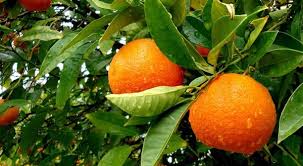The agricultural sector in Nigeria is a booming one with myriad rich opportunities. Even the government has acknowledged is by trying to improve things in the sector and thus shift focus from oil. The agricultural business has little or no risk involved. Plant rearing and animal rearing are the major areas in the agriculture that has lots of benefit.
The list of crops and trees that can be cultivated for sale is a massive one. Orange is high on that list after banna and plantain. The orange tree has attractive financial significance from it’s juicy sweet fruits to the peels, bark, roots and leaves. So engaging in orange farming in Nigeria presents several employment and business advantages.
Get started on that piece of land just sitting there or invest in some plots of land which you can get at cheap prices in remote places. A plot of land can take 50 orange stands with each stand producing up to 5 bags of orange. It costs about ₦800 to plant a stand while a bag of orange can be sold for ₦5000. Properly planted and cultivated trees can start yielding within 6 months, although in little quantities, but after a few more mints, it will begin producing in large quantities.
Products from the orange tree can be used in a variety of ways. The fruits can be eaten fresh or made into juice, squash or syrup. Extracts from the orange tree products like peel oil and citrus are well used by beauty and health care companies. The orange tree petals release a fragrant smell which attracts companies into fragrance and sprays to it, including bees. Even if you don’t produce all these things yourself, you can sell to the companies involved with them.
To have a productive business of orange farming in Nigeria, certain things need to be taken serious. One of those is treatment of the trees to fortify them against bugs, sicknesses, infections and other nuisances. This post will give you the step bybstep guide to orange farming in Nigeria. Before we go to the main message, let’s look at a few things.

Climate condition and location for growing oranges: Nigeria’s tropical climate is ideal for growing oranges.
Soil Condition: while oranges can grow in assorted soils like sandy, topsoil, red sand or clayey soils, the best choice however is loamy soil. Whatever soil is used, it must contain soil properties favourable to orange cultivation with soil pH of 6.0 to 7.5.
Water System: Your orange plants need lots of water. Having an irrigation system for it is therefore necessary. During dry season your trews should be watered every 8 to 10 days.

Now, here is your step by step guide to orange farming in Nigeria
First Step
Prepare the piece of land to be used for the orange farm. Clear away bush, grass, trees, roots, termites and anything on the land that would hinder the growth of your orange trees. You can do this manually or using herbicide chemicals and anti termite. After doing this, leave the waste to decompose on the land.
Second Step
Your next step is to get the soil ready to receive the seeds. The right soil for healthy orange trees is deep sandy loamy soil that is well drained. The seeds are to be planted in nurseries that are holes of about 3-4 inches in order to ensure it is wide enough to take in the whole roots. Orange trees have wide branches, so you want to give about 10 to 15 feet distance between stands to give them room to spread out their branches.
Third Step
Sowing time! You reap what you sow. So please, don’t go planting moringa or pawpaw and then expect to harvest oranges. Ensure you buy your seeds from a good vendor. If possible, ask for the fruits of the tree the seeds came from.

Fourth Step
It’s time to start treating your little baby plants with chemical. The first one you should apply is Actions 40 which works to separate roots of the baby plant nurseries. After about two months of applying Action 40, Dime-Force will be the next to be applied, in order to protect the fast growing plant from infections.
Fifth Step
After treatment, the next is the application of manure. You can apply the Fouler manure or any other type of chemical manure. Some chemical manure you could try are NPK 2020 fertilizer or Hiafia Bonus and other Hiafia products from Isreal. These manure contain all the necessary nutrients and ingredients needed to make your plants grow faster.
Sixth Step
Harvest your delicious sweet fruits and store for immediate or future sale. If you wish to have continuous harvest, you could try the grafting scheme. In this scheme, agric and native orange plants are grown together. While harvesting one of them, the other will be bearing fruits.
I am thinking to invest in oranges but don’t know where to get my seedling from. Hope this site could be of help to me. I just purchased about 23 ha that I want to entirely cultivate with oranges. I am looking for the best breed, preferably one that is long lasting, high bearing capacity and shorter maturity period. Thanks
My name is Josy Medugu, I would like to know where I can buy ambersweet orange seedling in Nigeria please. I have 8 hectres of land that I want to use for citrus and good varieties of pineapples. Kindly help.